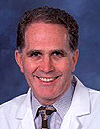|
Lectures |
| Week
1 |
Week
2 |
Week
3 |
Week
4 |
Week
5 |
Week
6 |
Week
7 |
Week
8 |
Week
9 |
Week
10 |
|
|
|
|
|
|
|
|
|
|
|
Tuesday, February
2nd
|

|
What Kind of
Assistive Technology Do You Need if You Break your Neck?
Graham H. Creasey, MD, FRCSEd
VA Palo Alto Health Care System |
This tour will be held at the
VA Palo Alto Health Care System campus in the Spinal Cord Injury Service. The
class will convene in Building 7, Room E111 at 4:30pm. Due to space
limitations, it is open to enrolled students only.
Abstract: Breaking your neck can
affect nearly every part of your life. Physically, you may be paralyzed from
the neck down, with no feeling in the body, unable to control your bladder or
bowel or sexual function. Obviously, this affects you emotionally and socially
- your education, work, house, travel, and relationships. What can assistive
technology do to change this?
The industrial revolution gave us new
tools, special beds, mattresses, wheelchairs and cushions, catheters, implants,
and many other gadgets. The microelectronic industry has revolutionized
communication and control of equipment in the environment; if you can control a
computer, you can control many other things. What about controlling paralyzed
muscles? What about curing paralysis?
Biosketch: Graham
Creasey, formerly the Chief of the Spinal Cord Injury Service at the VA
Palo Alto Health Care System, serves now as Staff Physician at VAPAHCS. He is
also the Paralyzed Veterans of America Professor of Spinal Cord Injury Medicine
at Stanford University. He attended the University of Edinburgh Medical School
in Scotland and completed specialty and sub-specialty training and
accreditation in Surgery and Spinal Injuries at the Royal College of Surgeons
of Edinburgh. Along with his clinical role, he has been actively engaged in
research, mainly on the restoration of bladder, bowel and sexual function using
electrical stimulation. Dr. Creasey is also dedicated to training junior
physicians and retaining outstanding young physicians in the VA Spinal Cord
Injury System of Care.
- Contact
information:
- VA Palo Alto Health Care
System
- Spinal Cord Injury
Service
- 3801 Miranda Ave.
- Room C115, Building 7
- Palo Alto,
CA 94304
- gcreasey -at-
stanford.edu
- Links:
Abstract: The Assistive
Technology (AT) Center serves veterans with brain injury, polytrauma, ALS, and
other conditions. Featured products will include Augmentative and Alternative
Communication (AAC) Aids, alternative computer access devices, electronic
cognitive aids, electronic aids for daily living, specialized seating &
powered mobility, and adaptive sporting equipment.
Biosketches: Dr. Jonathan R.
Sills is the Program Director for Assistive Technology within the VA Palo
Alto Health Care System and leads an interdisciplinary team of providers
working with a variety of rehabilitation patient populations. Dr. Sills
received his PhD in clinical psychology from Pacific Graduate School of
Psychology, interned at the VA Salt Lake City Health Care System, and completed
a postdoctoral fellowship in Geriatric / Rehabilitation Psychology at the VA
Palo Alto Health Care System. Dr. Sills maintains a broad interest in
Rehabilitation Psychology, Geropsychology, Neuropsychology, and Behavioral
Medicine. His current research interests focus on the implementation of
programs and technologies that support continuity of health services, the
optimization of interdisciplinary teams and collaboration across health care
settings, and neuropsychological assessment and cognitive retraining among
neurologically impaired patient populations.
Karen Parecki is an Occupational
Therapist who has worked at the Palo Alto VA since 1999. In that time, she has
had extensive experience working with veterans with neurological, orthopedic,
medical, and mental health conditions in both inpatient and outpatient
settings. Her primary areas of expertise in assistive technology are electronic
aids for daily living (EADL), environmental control units (ECU), adaptive
computer access, electronic cognitive devices. and specialized seating and
power mobility. She has been certified as an Assistive Technology Professional
through RESNA since 2010.
Eve Klein is a Speech Language
Pathologist who has worked at the Palo Alto VA since 2000. She joined the
Assistive Technology Center in 2010. She has extensive experience working with
patients with neurogenic speech, language and cognitive disabilities, and voice
disorders, in acute, outpatient, and rehabilitation settings. Her primary areas
of expertise in assistive technology include augmentative and alternative
communication and electronic cognitive devices. She has been certified as an
Assistive Technology Professional through RESNA since 2010.
Debbie Pitsch is a Physical
Therapist who has worked at the Palo Alto VA since 1999 and joined the
Assistive Technology Center team in 2010. She has over 20 years of experience
working with veterans with neurological and orthopedic impairments including
polytraumatic head injuries and amputation care in acute, outpatient, and
rehabilitation settings. Her primary areas of expertise in assistive technology
are adaptive sporting, prosthetic training, and ambulation devices. She has
been certified as an Assistive Technology Professional through RESNA since
2010.
- Contact
information:
- Debbie Pitsch, MPT, GCS,
ATP
- Physical Therapist
- Assistive Technology
Center
- VA Palo Alto Health Care
System
- 3801 Miranda Ave., Building
7
- Palo Alto,
CA 94304
- 650/493-5000 x 62544
- debbie.pitsch -at-
va.gov
- Lecture Material:
- Videos:
1 (3:11) -
2 (1:17:35 )
- Photos - Mb pdf file
- VA
Assistive Technology Center brochure - 219 Kb pdf file
- Links:
|